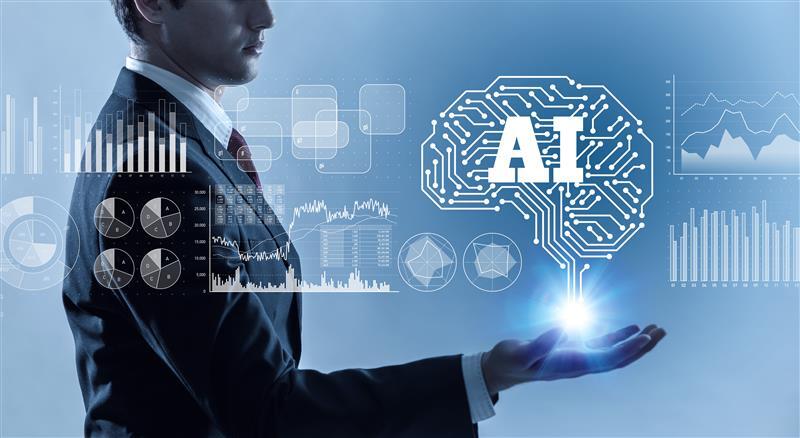
Oct 7, 2025
Blog artificial intelligence technology AI’s Global Disruption: Where We Are and Where We're Headed
Artificial intelligence (AI) is no longer a futuristic concept confined to science fiction. It’s embedded in our phones, powering our search engines, optimizing supply chains, detecting diseases, and driving cars. AI is fundamentally transforming industries, economies, and society at large. This global disruption wave presents tremendous opportunities and unprecedented challenges for businesses, governments, and individuals.
AI adoption is accelerating worldwide. According to BCC Research, the global market for AI disruption is projected to grow from $206.6 billion in 2024 to nearly $1.5 trillion in 2030 at a compound annual growth rate (CAGR) of 40% during the forecast period, driven by advances in machine learning, natural language processing, robotics, and computer vision. What began as isolated innovation hubs in Silicon Valley has become a global phenomenon.
AI’s global reach underscores its importance as a technology and a new foundation for international competitiveness and social development.
AI’s impact spans virtually every industry. Here's how it’s reshaping some key sectors:
AI transforms healthcare by improving diagnostics, accelerating drug discovery, and enabling personalized treatment plans. Tools like AI-powered radiology, predictive analytics, and chatbots for patient triage are saving time and lives.
AI is revolutionizing fraud detection, credit scoring, algorithmic trading, and customer service in banking and fintech. AI enables real-time risk assessment and better financial inclusion.
Smart factories powered by AI optimize operations through predictive maintenance, robotics, and supply chain automation. AI also plays a central role in quality control and energy efficiency.
AI personalizes shopping experiences through recommendation engines, virtual assistants, and dynamic pricing. AI-driven inventory management enables retailers to reduce waste and enhance customer satisfaction.
Autonomous vehicles, AI-driven logistics, and intelligent traffic systems are revolutionizing how goods and people move. AI is crucial to the development of urban mobility and last-mile delivery solutions.
AI isn’t a monolithic technology; it’s a collection of interrelated fields driving innovation:
As hardware catches up with software innovation (through GPUs, AI chips, and quantum computing), the performance and scale of AI solutions continue to improve dramatically.
The global market for AI is projected to grow from $206.6 billion in 2024 to nearly $1.5 trillion in 2030 at a compound annual growth rate (CAGR) of 40% during the forecast period.
With great power comes great responsibility. AI disruption raises critical concerns around ethics, data privacy, job displacement, and algorithmic bias.
Governments worldwide are grappling with the need to regulate AI without stifling innovation. The European Union’s AI Act, Biden’s executive order on AI safety, and China's AI governance principles are all efforts to set guardrails around responsible use.
Meanwhile, the impact on jobs is double-edged. While AI is expected to eliminate millions of routine or repetitive roles, it also creates new opportunities in AI development, data science, cybersecurity, and human-AI collaboration. The future workforce must be reskilled and upskilled to thrive in an AI-driven economy.
Several trends will shape the next phase of AI disruption:
AI is not just a technology; it is a paradigm shift. It’s reshaping how we work, live, and make decisions. While the road ahead is complex and filled with ethical considerations, AI holds immense potential to solve global problems and unlock new levels of innovation.
The key to navigating this disruption lies in collaboration between technology developers, policymakers, educators, and end-users. By focusing on responsible development, inclusive access, and continuous learning, the world can harness AI to build a brighter, more sustainable future for all.
Consider becoming a member of the BCC Research Library and gain access to our full catalog of market research reports in your industry. Not seeing what you are looking for? We offer custom solutions too, including our new product line: Custom Intelligence Services.
Contact us today to find out more.

Sandeep is a Senior Executive in Marketing Operations at BCC Research, proficiently serving as a graphic designer and content creative specialist. His expertise extends to AutoCAD and Revit, and he has made valuable contributions to the event industry with his design skills.
The global oligonucleotides market spanning custom DNA/RNA sequences, therapeuti...

What if decoding a single cell, interpreting an entire genome, or identifying a ...

What if we could fix diseases by rewriting the body’s own instruction manual? Th...

We are your trusted research partner, providing actionable insights and custom consulting across life sciences, advanced materials, and technology. Allow BCC Research to nurture your smartest business decisions today, tomorrow, and beyond.
Contact UsBCC Research provides objective, unbiased measurement and assessment of market opportunities with detailed market research reports. Our experienced industry analysts assess growth opportunities, market sizing, technologies, applications, supply chains and companies with the singular goal of helping you make informed business decisions, free of noise and hype.